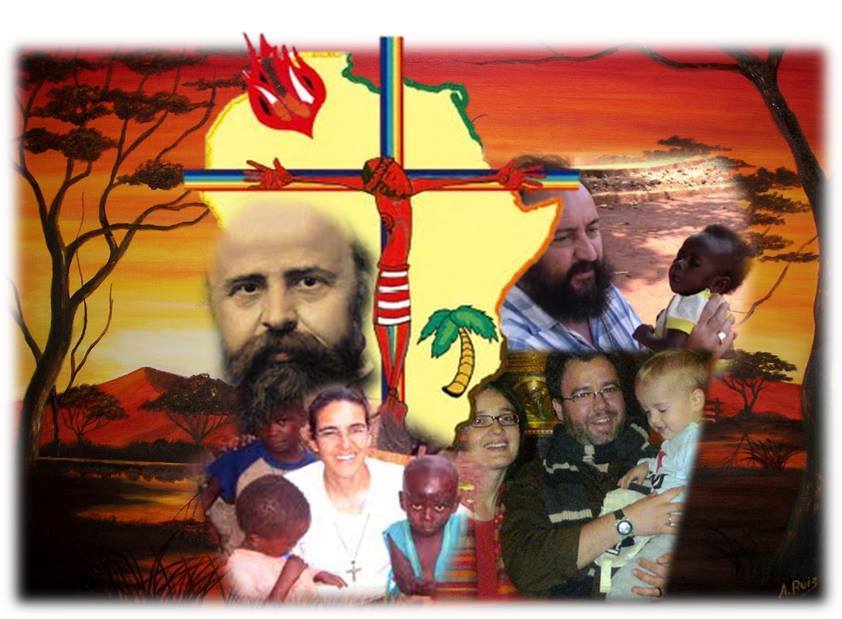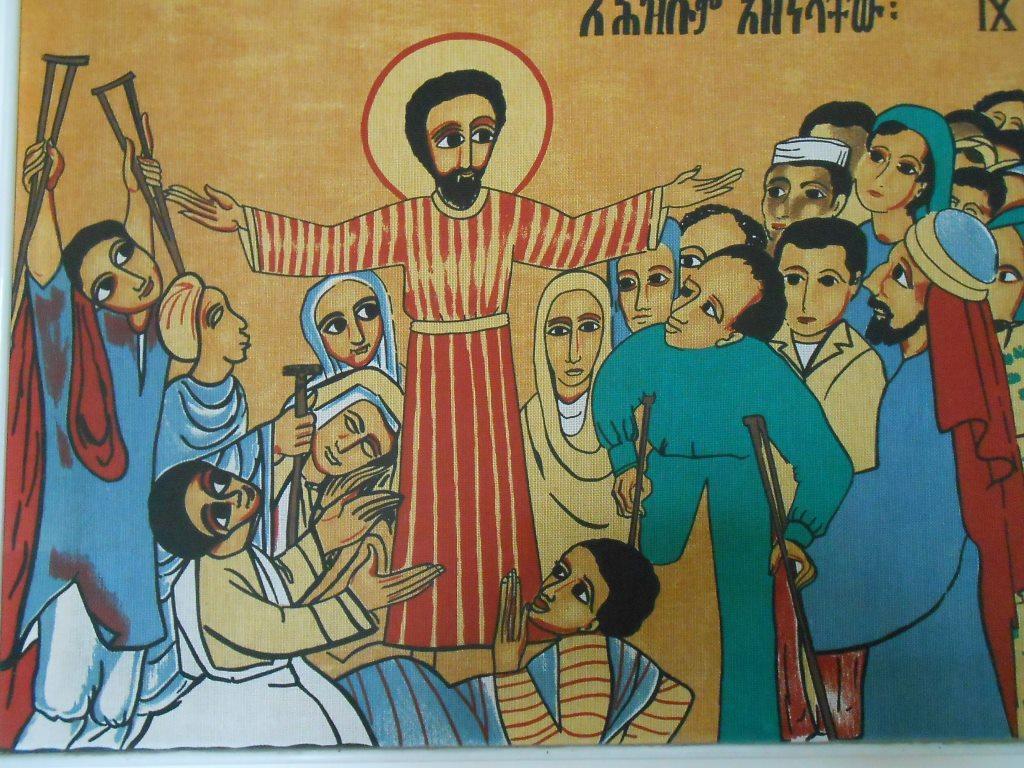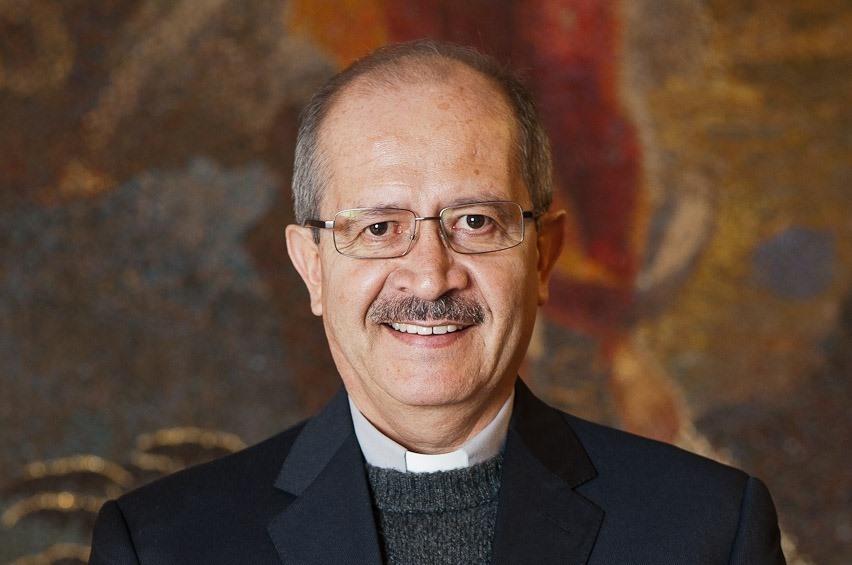
150 YEARS SINCE
THE PLAN OF DANIEL COMBONI
FOR THE REGENERATION OF AFRICA
Learning to look to the future
Some starting points for reflection
On 18 September, 2014, 150 years will have passed since the first draft of the “Summary of the new plan of the Society of the Sacred Hearts of Jesus and Mary for the conversion of Nigrizia proposed to the Holy Congregation of Propaganda Fide by Fr. Daniele Comboni of the Mazza Institute, 1864”. As we know, this first edition was to be followed by others in different languages – Italian, German, French – with some small but important changes. In the fourth edition, for example, the title is “Plan for the regeneration of Africa proposed by Fr Daniel Comboni, Apostolic Missionary of Central Africa, Superior of the Institutes of the Blacks in Egypt. Fourth edition, Verona, Episcopal Printers, A. Merlo, 1871. Regeneration of Africa with Africa”.
The event of the Plan – rather than the Plan itself – certainly represents a very important moment in the maturing of the missionary charism of St. Daniel Comboni, a charism which is fundamental to our call to mission in the sequela Christi at the service of the Kingdom of the Father in the world. The “Go, therefore”, with which Jesus, in the words of the evangelist Matthew, sends his disciples out into the world, as Pope Francis again reminds us, becomes concrete for us as “Go, therefore, to Africa”, and, in charismatic continuity, as “Go, therefore, to the poorest and most abandoned”.
For Comboni, the missionary mandate of Christ “becomes flesh” and history in the missionary commitment that takes concrete form in the Plan, with all its premises and consequences. And it is for this reason that we, the heirs of the Comboni charism, consider the commemoration of the Plan as a kairòs, an opportunity for missionary renewal in the present-day context of our Institute in transformation, of the Church called again to live out and witness to “the joy of the Gospel”, and of a globalised society seeking new meaning, new relationships and new life.
Looking to the future rather than to the past, we, in our capacity as the General Council, propose to the entire Institute that we use this anniversary to commemorate, to reflect, to celebrate and, above all, to learn from Comboni the style and practice of planning in our apostolic life at all levels. In order to reach this objective, each one of us, each community and Province may carry out suitable initiatives. On our part, as we have done in previous years, we are seeking the help of some confreres to prepare supplements to be inserted in Familia Comboniana to facilitate personal and community reflection. We have asked for material on the following themes: “The Plan of Comboni and the importance of pastoral planning”, “The ministerial content of the Plan”, “the Plan and missionary ecclesiality”, “Spirituality in the Plan”, “Horizons for today present in the Plan (Plan-Local Church-Mission)”.
In addition, we are preparing the celebration in Rome, next September and October, of two events: one for the public (external) and another for us Comboni Missionaries. The second is open to Comboni missionaries from all the provinces who wish to reflect together on the missionary emergencies of today and the answers we Combonis are called to give, following the path of the journey begun by Comboni. We hope that this symposium will help us, among other things, to prepare for the next general Chapter.
As you see, what we are proposing is not so much to engage in deep study on the history of the Plan as to make of this opportunity a “favourable time” that helps us to respond to the missionary demands of our time, just as Comboni responded to the demands of his.
With this letter, we wish to give you some points for personal and community reflection to which each of you may add with his own reflection and sharing at various levels.

I. Some Premises
Reading the Plan of Comboni from the point of view of our present situation, some premises that invite us to comment, immediately emerge:
1. Observing the situation (seeing)
Comboni starts from involvement in a reality which is, at the same time, a great humanitarian requirement and a great missionary opportunity; a concrete reality, geographically defined – the mission of “Central Africa” – but attached to the whole of Africa, the whole of the Church and of humanity. Comboni, attentive to “the signs of the times”, discovers the challenge and opportunity that Africa represents for the Church and people of his time; and he offers a response that is generous but also mediated and, as far as possible, articulated.
Our Chapter Documents frequently insist on the need to be attentive to the situation. It is a fundamental principle of Comboni methodology that we must take up again with renewed enthusiasm at the various levels of our life and mission. In our reflections – at personal, community or provincial level – we can and we must continually ask ourselves: what is the concrete reality that challenges us, as a missionary opportunity for us today, and what universal connections does it contain?
2. The vision (judging)
We are aware that reality is never observed by neutral eyes but is seen differently according to the point of observation. Comboni, in his Plan, speaks of two main perspectives:
a) The “colonial” perspective which sees Africa as an opportunity for geographical expansion, commerce, the exploitation of natural resources, personal glory …
b) The perspective of the Catholic “Christian philanthropist” who “has turned his attention to the spiritual and social conditions of those peoples …, and poured out in his turn the results of his brotherly pity and worked to better the Africans’ sad lot.” (W 801).
It is interesting to note that Comboni is not so much interested in speaking of “situations” as of “persons”. In this sense, it would be important, in our planning, to ask ourselves the same questions as Comboni: what are the spiritual and social conditions of the persons in an integral vision of their lives? How should we react with “fraternal commiseration”, according to the “principle of mercy” which Pope Francis is re-proposing with such energy and effect in today’s society? What can we do to contribute to “the betterment of their lot”?
3. Definition of goals (acting)
Starting from the situation and his vision, Comboni becomes involved in personal action and in a proposal for action by the Church. His involvement is broader and more “definitive” than that of the Plan, even if the Plan is an instrument of his involvement and an expression of the meaning of his total dedication without any “ifs or buts”. His “marrying Africa” does not depend upon the success or failure of the Plan but is unconditional and definitive. If the Plan does not work, he is ready to try another way. As we know, in the first editions of the Plan, Comboni speaks of conversion but, from the third edition on, he always speaks of “regeneration”; in the text cited above, he speaks of “bettering the spiritual and social conditions”. This means that Comboni had an intuition whose conceptual content became clearer with the passing of time, as may happen with ourselves.
A primary reflection may help us to realise that the goal of our planning must not be either “to see the situation” (make an exhaustive but ineffective analysis), or to “feel mercy” (feel good personally), but “the betterment of the spiritual and social conditions” (concrete action that affects the lives of people). The goal is outside ourselves, not within us. In this sense, the view of Comboni coincides fully with that of Pope Francis who calls the Church of today to “go out” of itself towards the “essential frontiers”, to “go”. «I am convinced – he said to the General Superiors – that the key to all this lies in this word: “go”».
Each community ought to ask itself: what goals do we wish to reach, not for ourselves but for the good of people? Where do we find the “essential frontiers” that call us to go out of ourselves?
II. Setting out the Plan
Starting from an analysis of the reality, a vision of faith of the situation and from the decision to become actively involved in effective action, Comboni sets out his Plan of which we wish to propose to you some points that seem especially relevant for us today:
1. Recognise what has been done by others
“They did praiseworthy things”, says Comboni. He does not start from scratch but studies previous history and recognises its merits; he builds on what was already done by others …
This principle is very important for us today, after 150 years of Comboni missionary history. Many activities entrusted to us – parishes, works, institutions – already have a long history. We must continually ask ourselves: what have those who preceded us done? What point did they reach? From what point should we continue?
2. An analysis of one’s own experience
“We, who for some time have explored those remote tribes”… A missionary Plan is not to be made “from behind a desk”, on the basis of a priori theoretical statements, emotional “intuitions” or guesswork “suppositions”. What is needed is concrete observation and experience, we must learn from mistakes …
In this analysis, Comboni attaches great importance to the difficulties encountered: the climate, the lack of an “active centre”. These difficulties make him think and open up himself to new possibilities. “Experience clearly shows that the European cannot carry on his work of redemption in those torrid regions …”
Very often we are good at suggesting initiatives and proposals that are time and again soon abandoned, without the due analysis to help us understand where and why they failed and what we can learn for the future with constancy and perseverance.
3. The need for a “new plan”
Comboni does not remain fixed in a false “fidelity” to the Plan received from Don Mazza or the missionaries who preceded him. Aware of the failure of previous plans, he has the courage to “retrace a path that is PROBABLE, even if not certain, for the purpose of beginning to provide for the future regeneration of those abandoned souls”.
It is not a question of a “neutral”, abstract Plan to be offered to others while he stays at his desk, but one that involves all his own energy and his entire person. With his Plan, Comboni gambles his complete self.
At times we make proposals for others to carry out. This is not a Comboni attitude. Comboni pays the price personally.
4. Inspiration: “Suddenly, a Plan burst into my mind”
The Plan is the fruit of much historical study and reflection, of much listening and sharing, over years, with other persons and institutions, but it is also the fruit of an inspiration born in a context of prayer. The Plan is not the product of a single day, or a passing emotion but neither is it the fruit of cold and “detached” study. The Plan is the fruit of the mind and heart of Comboni, his dedication to study and his ability for decision-making, analysis and personal, committed work, as well as his openness to the gratuitous and surprising work of the Spirit.
The last Chapter insisted much on discernment as the Comboni methodology to arrive at decisions in the community and apostolic environments. We still have much to do in this area. Some obstacles preventing us from making progress in methodology and discernment are: superficial analysis; a certain laziness in making the effort to do the necessary study and reflection; lack of perseverance in facing difficulties; the inability to share one’s views in simplicity and to subject them to the scrutiny of others; arrogance that leads us to despise the views of others and to refuse either to be corrected or to learn from one’s own experience or that of the others; lack of openness to the work of the Spirit who renews all things… Doubtless, you could add other attitudes that demand our conversion.
III. The Plan itself (some fundamental principles)
We do not wish to dwell here on an analysis of the concrete content of the Plan but to recall some principles that may be useful today:
1. The Africans can and must become instruments of the regeneration of the Continent. This is a fundamental principle of Comboni methodology which we must apply to all the missionary situations, remembering that Comboni is planning a future that does not yet exist and which is, in a way, indispensable. Making a Plan implies precisely looking to the future, dreaming of that which does not exist and trusting the persons involved before knowing how they will react.
This leads us, in every situation, to ask ourselves: which people can we count on to build the future today? We know we cannot wait until we are absolutely sure …
2. Formation is a fundamental option. Comboni invests a lot of resources in personal formation, aware that not all will respond a hundred per cent. The future is not built with ideas that are not well thought out but with concrete persons, their charisma and also their weaknesses, trusting always in a healthy realism that takes into account the personal and cultural conditions.
We may ask ourselves: are we investing enough in personal formation, both for the Institute and for the Church and society? In which persons should we invest, today, the resources entrusted to us by the people of God to create a new future?
3. Men and women, priests and laity, Brothers and Sisters. We know that Comboni unites in his project priests and lay people, men and women… catechists and “artists”, in a vision that is an integral part of the mission.
Do we succeed in creating, there where we are and work, this apostolic synergy? It is clear that, today, every Comboni missionary project must involve all the categories of the people of God, avoiding the temptation of self-reference, clericalism, ritualism and the like.
4. In the universal Church. The Plan fully finds its place in the context of the universal Church. Comboni wants to “enlarge” the Church, but never to detach himself from her. He feels positively and affectively identified with the Church. On the other hand, the Plan starts from a concrete situation – Central Africa – but it is open to the problematic of the whole continent in the context of the universal Church. It does not reduce the mission but expands it. Comboni tries to unite the agents, not to take their place, allowing every individual and institution to retain their own identity and their own charism…
We may ask ourselves: how do we feel today in the local and universal Church? Do we feel we are active, free and co responsible members? Do we make our plans in communion with the local Church? Have we a “broad” view of Church or do we remain closed in our little “kingdom”? Do we try, at times, to reduce the mission to our personal charism, without allowing others to make their contribution?
Conclusion: let us all make our Plan
These are just some ideas to begin our reflection. Many others may be found in the supplements requested from confreres or in other material freely presented, but we believe it is not just a question of reflecting but of acting.
To be concrete, it would be good that, as a fruit of the anniversary, at the end of the year, all our parishes, works, animation centres, communities and provinces could make a new Plan, up-to-date and realistic, of missionary life and actions.
To make or renew our Plan for mission, there where we are, might be the best way to celebrate the 150th anniversary of the Plan of Comboni.
Fr. Enrique Sánchez G.
Fr. Alberto Pelucchi
Fr. Antonio Villarino
Fr. Tesfaye Tadesse
Bro. Daniele Giusti
 Questo sito utilizza cookie, anche di terze parti, per inviarti pubblicità e servizi in linea con le tue preferenze. Se vuoi saperne di più o negare il consenso a tutti o ad alcuni cookie clicca qui. Chiudendo questo banner o cliccando qualunque suo elemento acconsenti all'uso dei cookie.
Questo sito utilizza cookie, anche di terze parti, per inviarti pubblicità e servizi in linea con le tue preferenze. Se vuoi saperne di più o negare il consenso a tutti o ad alcuni cookie clicca qui. Chiudendo questo banner o cliccando qualunque suo elemento acconsenti all'uso dei cookie.





